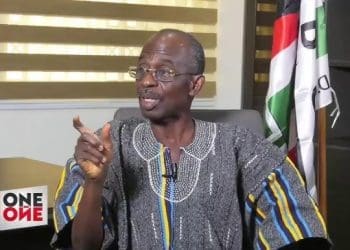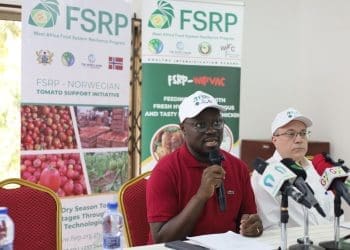In an industry often associated with older generations, grief, and taboo, 24-year-old Winifred Ewurabena Kwarteng is boldly reshaping perceptions by thriving in Ghana’s mortuary and funeral services sector.
Winifred, a mortician and certified health driver, has taken over the reins of her late father’s establishment—Jabe’s Dominique Funeral Home. Her journey is anything but ordinary. She stands out not only for her age and gender but for the deep sense of purpose she brings to a profession many avoid.
“I do this business with passion,” she said confidently. “It’s not just a job; it’s a calling.”
The funeral home, which has served the Agona Swedru community for over 25 years, was temporarily shut down when her father’s health declined, and she struggled to balance school with the demands of the business.
Rather than let her father’s legacy fade, Winifred made the bold decision to revive the business, expanding it into two active branches: one in Agona Swedru and another in Gumo Gwa in the Central Region.
At an age when many of her peers are still exploring career options, Winifred has not only found her path but is commanding attention in a traditionally male-dominated field. Her presence in Ghana’s funeral services space is both disruptive and refreshing.
Upclose with Ghana’s youngest mortician and hearse driver, Ms. Winifred Ewurabena Kwarteng, a 22-year old young lady who’s challenging the status quo by successfully operating a thriving business in the funeral services industry. pic.twitter.com/WE8DH9cDJm
— SIKAOFFICIAL🦍 (@SIKAOFFICIAL1) June 30, 2025
With quiet confidence and a deep sense of purpose, she began working in the mortuary at just 24 years old. Today, she plays a vital role in every aspect of the operation—from embalming and preservation to coordinating burials and supporting grieving families.
While many shy away from mortuaries, Winifred’s curiosity led her to learn about what happens behind the scenes in preparing loved ones for their final farewell. She shadowed an embalmer, asked questions, and over time, discovered a passion for dignified service.
Now a central figure in a small but dedicated team in Agona Swedru, Winifred’s duties range from preparing bodies and conducting embalming to organising wakes and ensuring that cultural traditions are properly observed. She has earned a reputation for being meticulous, respectful, and deeply empathetic.
For her, the role is more than technical—it’s personal.
“I see myself as a caregiver for both the deceased and the living,” she said.
Beyond the stigma
Working in a mortuary comes with its own set of social challenges. In many Ghanaian communities, professions dealing with the dead are often regarded as spiritually dangerous or emotionally taxing. But Winifred is determined to change that perception.
“I’ve heard the rumours,” she admits. “Some people believe we use ‘juju’ or that we do strange rituals. But for me, I have only one spiritual backing—God.”
Firm in her faith and unapologetic about her mission, she’s committed to restoring dignity to the deceased and offering compassionate support to their families. She stresses that her work is entirely professional and strictly governed.
“We don’t pour libation. We don’t do rituals. We don’t allow anyone to take water used for bathing the body or any part of the deceased. Even family members must go through paperwork if there’s any special request, because we don’t know their intentions.”
Winifred’s story is not just about entrepreneurship or an unusual career choice—it’s a bold declaration of courage, empathy, and the need to shift cultural conversations around death and dying.
A day in her work
At Jabe’s Dominique Funeral Home, services include embalming, preservation, cold storage, the sale of caskets and wreaths, rental of funeral accessories such as canopies and chairs, and transportation of bodies.
From preparing the deceased for transfer to coordinating logistics and supporting bereaved families, Winifred is hands-on in every aspect.
“When preparing the body for transfer, we clean it up, ensure there’s no fluid retention, and use dry embalming methods,” she explains. “Everything is handled with care, respect, and transparency.”
Despite the sombre atmosphere of the mortuary, Winifred finds meaning in her work. She harbours no fear of the dead.
Let me share some of my experiences after delivery 🥰🥰🥰@SIKAOFFICIAL1 @mrphilghana pic.twitter.com/jysMQXSwjY
— Ewurabena Winifred ❤️ (@EwuraWini) July 1, 2025
“I see them as people who are asleep. I’m not scared, because I was trained to respect them, not fear them.”
A vision for the future
Winifred’s choice to continue her father’s business was not just a practical decision—it was deeply intentional. While many of her peers pursue traditional careers in medicine, law, or finance, she chose a path rooted in legacy, purpose, and service.
“Why write job applications and wait for someone to give me a salary, when I can work on this business and grow it? It’s mine. I have the liberty to build it the way I want.”
She acknowledges that the journey has come with challenges, but the reward—offering support to grieving families and leading a thriving enterprise at her age—is more than worth it.
With compassion as her compass and professionalism as her tool, Winifred Ewurabena Kwarteng isn’t just running a mortuary—she’s breaking stereotypes, changing minds, and bringing new life to an often misunderstood industry.












